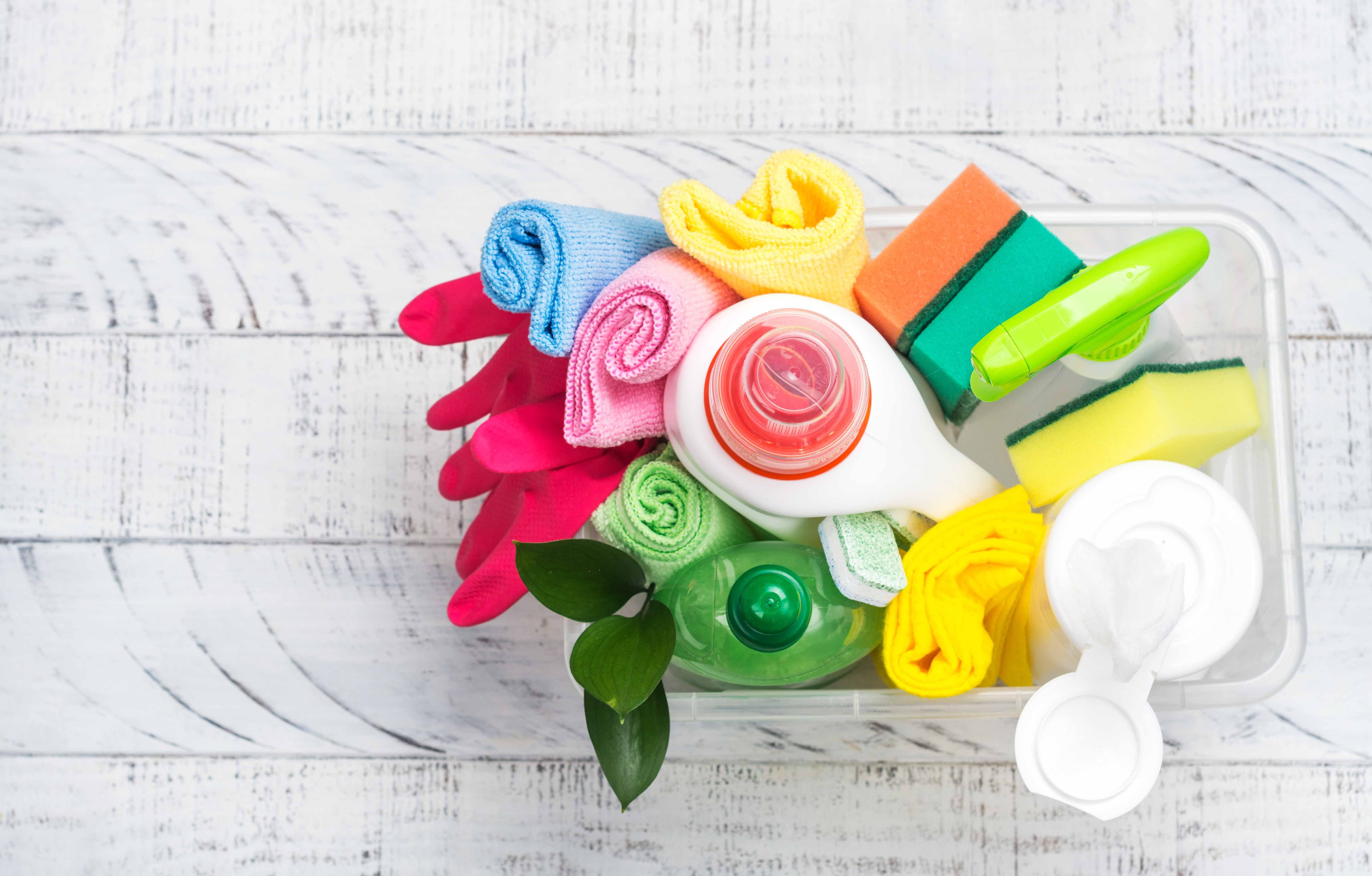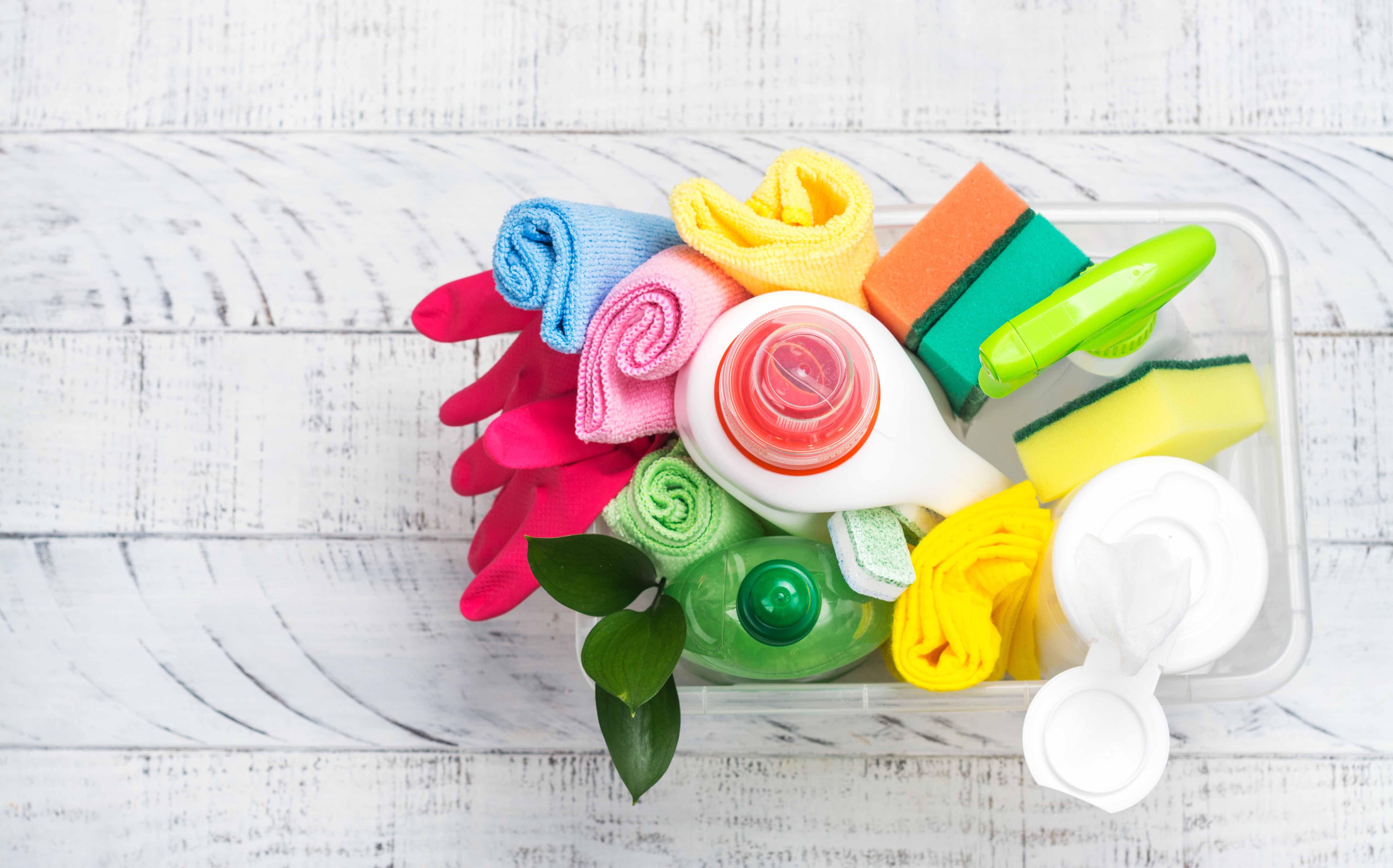DIY Cleaning Products


Spring is in the air! Which means it’s time to throw open the windows, let in some fresh air and begin the process of spring cleaning. There’s no time like the present to make your own DIY cleaning products, all you need are a few common household ingredients and a clean spray bottle or large container for storage.
A few points to keep in mind when making your own cleaning products:
- Use distilled water and distilled white vinegar for homemade cleaners. You can find these products in grocery stores and well-stocked pharmacies.
- Essential oils are a fantastic way to add fragrance to homemade cleaning products; lavender, rosemary, and citrus essential oils add a particularly pleasing scent. See the section on DIY cleaning product safety below to read about essential oil usage and pet safety.
- Always, always, always do a patch test before trying out a new DIY cleaning product.
- Commercial cleaning products are designed to do the heavy lifting for you. Homemade cleaning products are significantly gentler than their store-bought counterparts which means you may need to apply more elbow grease or even repeat the cleaning process several times.
Easy recipes for DIY cleaners
All-purpose cleaner
Fill a large jug with two litres of cool water. Add ½ cup of white vinegar and ¼ cup of baking soda, gently shaking or stirring to combine. This cleaner can be used to clean glass surfaces, mirrors, bathroom fixtures, refrigerators (both inside and out), walls, and baseboards.
Floor cleaner
Take good care of your floors by treating them to an all-natural cleaner. Combine 2 cups of water, 1 cup of isopropyl/rubbing alcohol, 1 cup of white vinegar, and 5 drops of dish soap in a large spray bottle or mop bucket. This cleaner works best on tiled, linoleum and laminate floors; avoid using it to clean hardwood floors (both finished and unfinished.)
To clean finished hardwood floors, use a gentler solution of 2 litres of cool water mixed with ¼ cup of white vinegar. Vegetable or olive oil can be used to buff the surface but, as with all cleaning solutions, test on a small patch of flooring first.
Stain removers
All laundry stains are not equal, so it’s important to choose the most effective ingredients for the job. For example, white vinegar, hydrogen peroxide, and baking soda can all be used to treat different kinds of stains. While white vinegar should never be used to treat a protein-based stain, a good soak in hydrogen peroxide that has been diluted with cold water can work wonders. White vinegar can be used on its own or made into a paste with baking soda to treat many other kinds of fabric stains.
Oven cleaner
Commercial oven cleaner is particularly nasty to work with, its powerful scent is so strong it can practically take your breath away. To clean your oven using natural ingredients you’ll need ¾ cups of baking soda and ¼ cup of salt. Using a spray bottle or saturated sponge, wet the inside of your oven. Sprinkle the baking soda and salt on top and gently scrub into a paste, let sit overnight. Use an abrasive sponge to scrub the oven, you may find you need to repeat the baking soda and salt step several more times for best results.
Safety first!
Just because an ingredient is considered “natural” that doesn’t necessarily mean it’s safe to use indiscriminately. If you’re ever unsure about an ingredient it’s always a good idea to consult your province’s Poison Control website. Not only will you gain access to important resources about common household cleaning agents, you’ll also find information about how certain ingredients will react with one another.
- Always clearly label and date any containers (spray bottles, small buckets, etc.) to prevent accidental misuse or ingestion.
- Refrain from mixing white vinegar and bleach, even in heavily diluted amounts. When combined, these two chemicals will produce a toxic chlorine gas which can cause itchy, burning eyes, intense coughing and a runny nose.
- Baking soda is a powerful abrasive. Exercise caution when using it directly on clean marble or granite surfaces (to prevent scratches), and when cleaning fibreglass tubs, sinks or bathroom tile and aluminum pots and pans (to prevent discolouration).
- While they may smell pleasant to you, some essential oils can be toxic for pets (especially for cats, as they are unable to metabolize certain essential oils.) Clove, rosemary, tea tree oil, thyme, and peppermint are just a small handful of essential oils that are toxic to pets.
